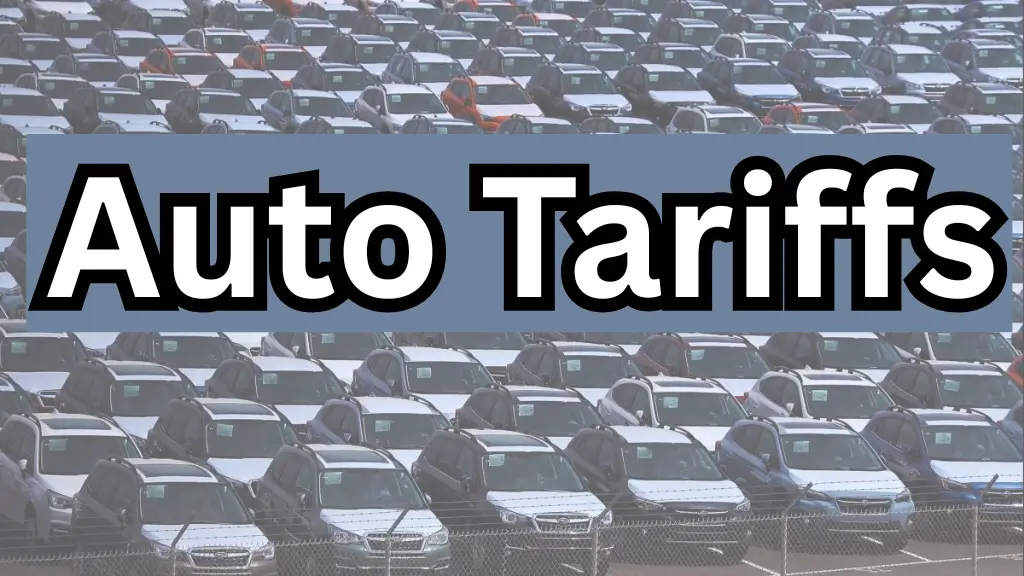U.S. Auto Industry Urges Trump to Rethink New Auto Tariffs
As President Donald Trump pushes for new tariffs on auto parts to protect American manufacturing, the U.S. auto industry has united in rare opposition, warning that the move could backfire with devastating consequences.

A coalition of leading industry groups, including the Detroit Three automakers (Ford, General Motors, and Stellantis), parts suppliers, and dealerships, have submitted a joint letter to the Trump administration dated April 21. They caution that imposing tariffs by May 3 would sharply increase car prices, disrupt critical supply chains, and cause widespread layoffs across the sector.
Higher Car Prices and Supply Chain Chaos
According to estimates by Anderson Economic Group, the new tariffs could cost American consumers an additional $30 billion in just the first year. Prices for vehicles could surge between $2,500 to $12,000 based on the U.S. content of the car. Popular models such as the Honda Civic and Volkswagen Jetta could see modest increases, while trucks like the Ram, Toyota, and Ford Bronco Sport may cost up to $8,500 more. Imported luxury vehicles from Audi, BMW, and Land Rover might experience price hikes exceeding $20,000.
The tariffs could begin affecting dealership inventories and car prices as early as May 2025.
Risk of Plant Shutdowns and Job Losses
The North American auto sector operates on thin profit margins and depends on an integrated supply chain across the U.S., Canada, and Mexico. Industry groups stress that most parts suppliers are financially fragile and cannot absorb sudden tariff costs. Production stoppages, layoffs, and bankruptcies could follow if suppliers collapse.
“If just one supplier fails, it can halt an entire production line,” the letter states, referencing shutdown patterns seen during the COVID-19 pandemic.
Notably, companies like Stellantis have already paused production at their Windsor, Ontario, plant, and GM hinted at possible shifts of manufacturing operations back to the U.S. if tariff pressures intensify.
Industry Voices Growing Louder
While earlier responses to Trump’s tariff policy were muted, the scale of the potential damage has forced the industry to speak out more aggressively. Ford CEO James Farley had warned earlier this year that tariffs would “blow a hole” in the industry. The April 21 letter marks the first collective and public stance taken by key players in U.S. auto manufacturing.
Patrick Anderson, principal at Anderson Economic Group, explained that the massive anticipated costs left the industry no choice but to become more vocal and direct in opposing the administration’s plans.
The Bigger Picture
The era of quiet lobbying seems over, with major industry groups going public in their efforts to stop the tariffs. Experts fear that internal efforts to persuade the administration have failed, prompting this united and public appeal.
Flavio Volpe, head of Canada’s Automotive Parts Manufacturers’ Association, said the public nature of the letter reflects a deep concern that Trump’s administration will not backtrack without substantial public pressure.
The stakes are enormous — not just for automakers and suppliers, but for millions of American consumers who could soon face unprecedented car prices amid a fragile economic recovery.
Summary of Key Points for Quick Understanding:
- Trump’s new tariffs on auto parts planned for May 3, 2025.
- U.S. auto industry warns of $30 billion cost to consumers in year one.
- Car prices could rise by $2,500 to over $20,000.
- Supply chains risk collapse, threatening factory shutdowns and layoffs.
- Industry groups make rare public appeal against Trump’s tariff plan.
As a finance news writer at sirfal.com, I specialize in breaking down complex economic trends, market updates, and investment strategies into clear, actionable insights. My mission is to empower readers with the knowledge needed to make informed financial decisions. Thank you for engaging with my articles; I hope they add value to your financial journey.